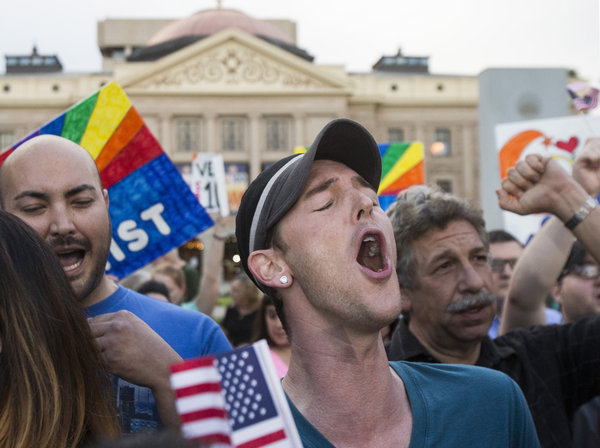The right to discriminate?
“Congress shall make no law respecting an establishment of religion, or prohibiting the free exercise thereof; or abridging the freedom of speech, or of the press; or the right of the people peaceably to assemble, and to petition the Government for a redress of grievances.” The first amendment to the Constitution of the United States offers admirable freedoms, but not the right to blatantly discriminate against others. Freedom of expression is a basic right that should be valued, but where is the line between freedom of expression and discrimination?
The Arizona legislature recently passed a bill, thankfully rejected by Governor Jan Brewer, that essentially gave people the right to discriminate. Written by the Center for Arizona Policy and a Christian legal organization called the Alliance Defending Freedom, the bill was prompted after a Washington florist and a Colorado baker refused to provide services for gay weddings. The bill was aimed at protecting all individuals, businesses, and religious institutions from lawsuits against discrimination if the defendants were strictly influenced by their religious beliefs.
“In America, people should be free to live and work according to their faith, and the government shouldn’t be able to tell us we can’t do that,” said Joseph E. La Rue, the legal counsel at Alliance Defending Freedom. Religious groups should have the right to believe in what they wish, and should have the right to express their belief, as long it is not infringing upon other people’s rights.
There is a difference, though, between an individual as a practitioner of a religion and an individual who own a business. According to Daniel Merch, director of a program on freedom of religion and belief for the American Civil Liberties Union, “Over the years, we as a nation have rejected efforts to invoke religion to justify discrimination in the marketplace, and there’s no reason to turn back the clock now.” The bill would have taken the United States back to the 1950s, when minority groups were often treated like second-class citizens.
Such an action would have been a gateway to discrimination, not just of the LGBTQ community, but of anyone who is treated unequally because of religious beliefs. It would have allowed store owners to decline someone’s business on trivial grounds, and led to marginalization and dehumanization.
Sources: cnn.com, nytimes.com

On her third year on the Talon, Faria is serving as co-EIC with Michael Borger (God, help us all). As a senior, Faria discovered the key to success–and...











